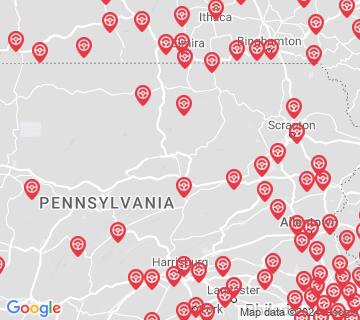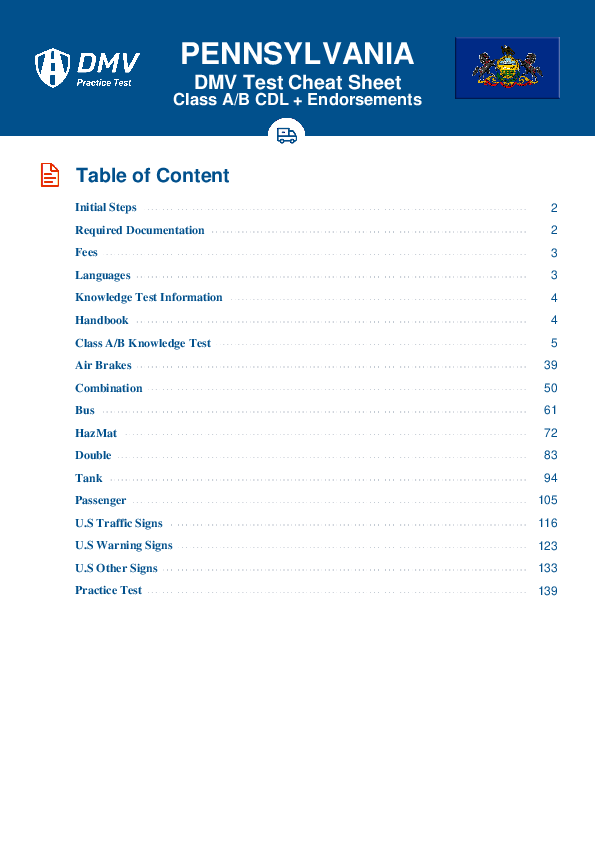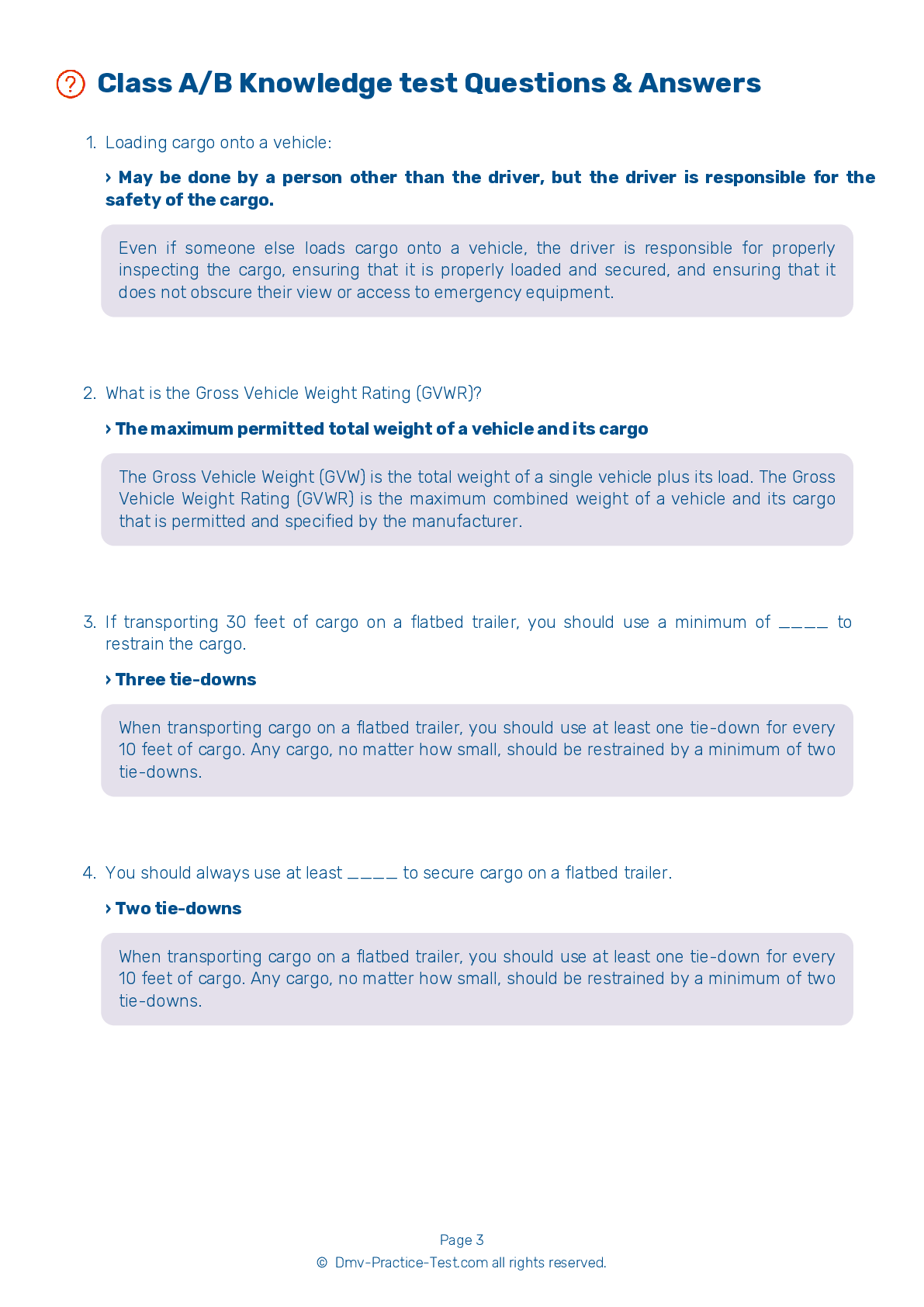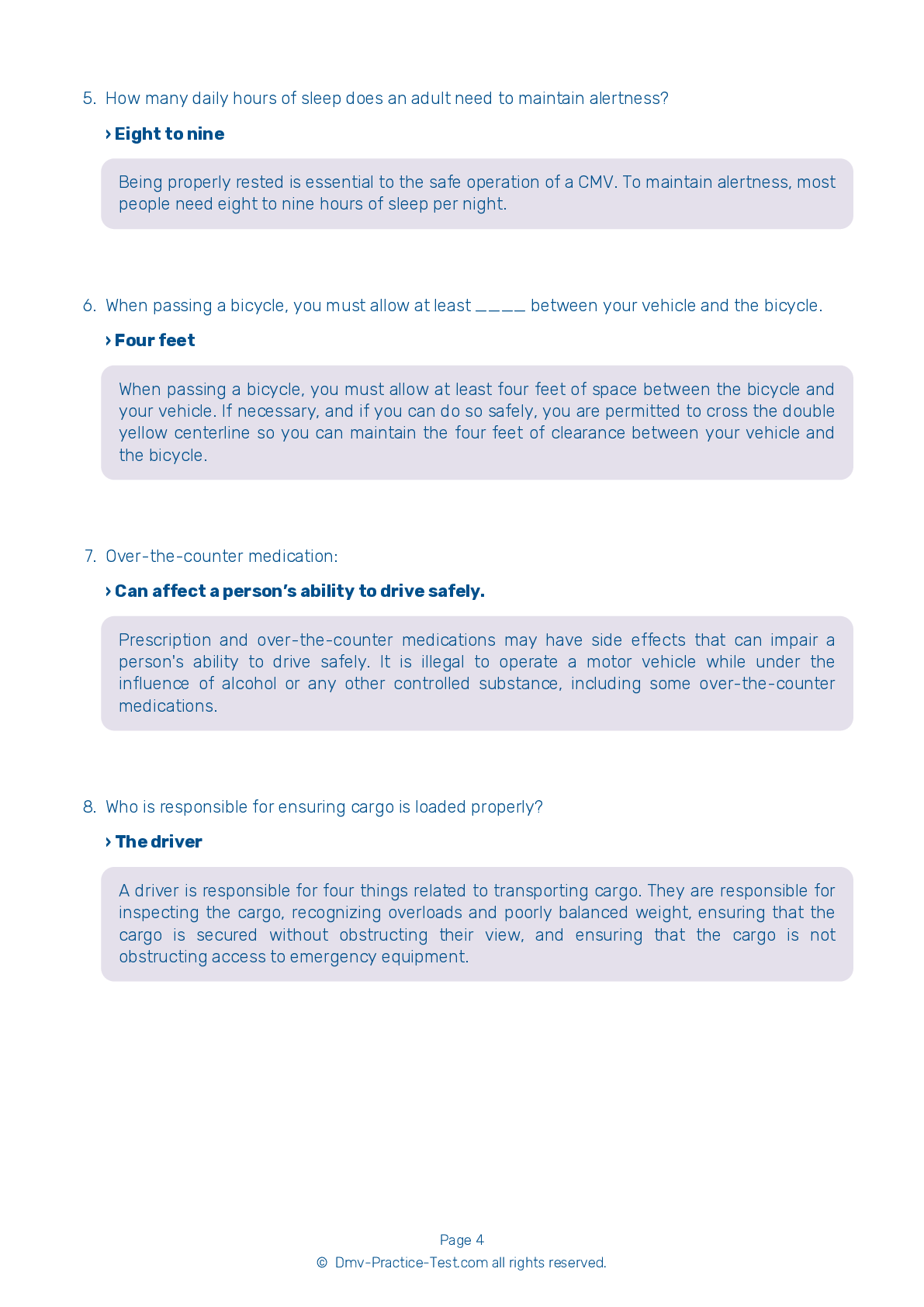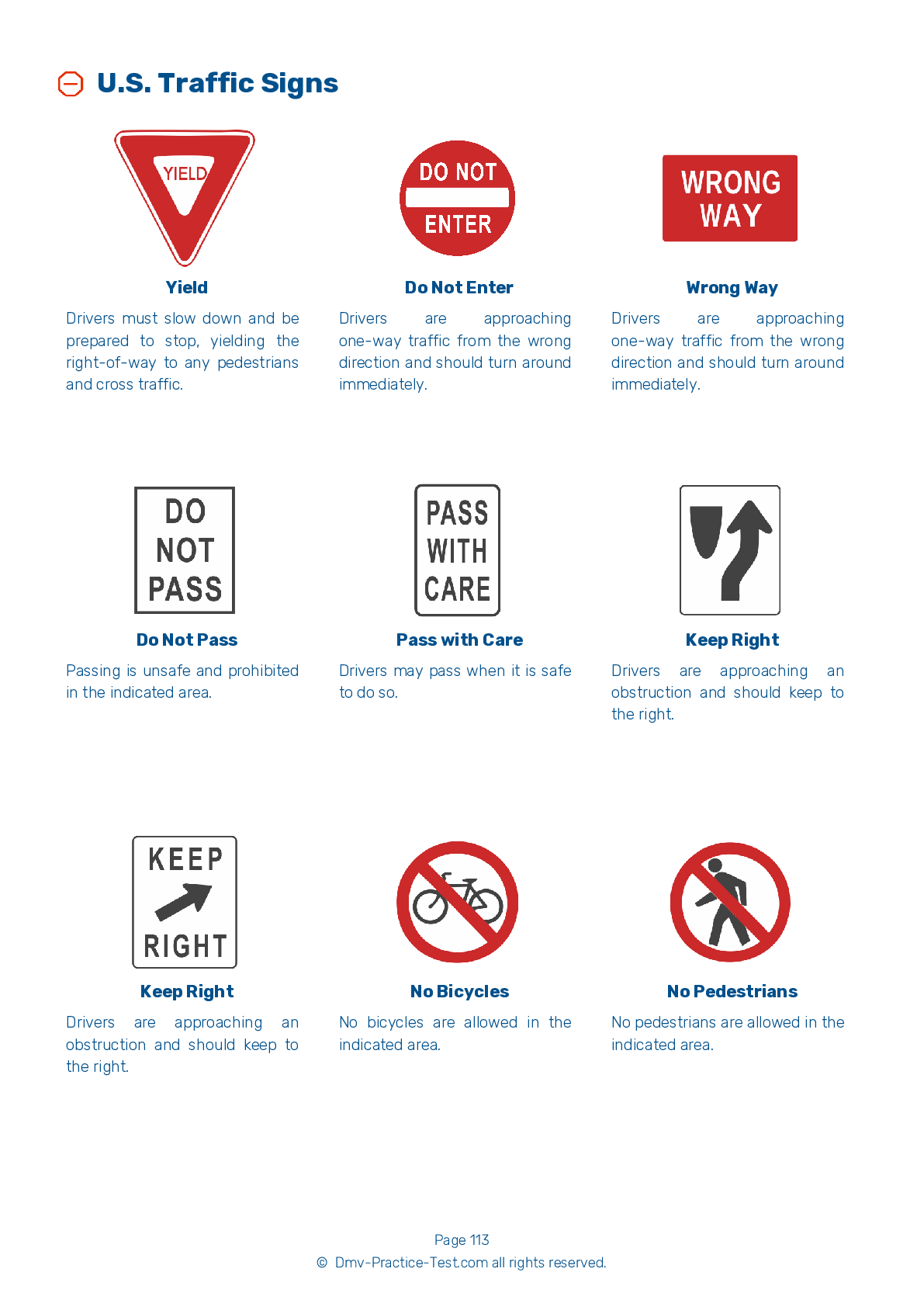Combination #2
Combination Vehicles Practice Test | Pennsylvania 2026 #2 Page 3 of 3
Train for FREE online with our Pennsylvania CDL combination vehicle test. The official exam test consists of several obligatory parts, with all of them checking your knowledge of different blocks of road rules. If you need to obtain a PA combination license in 2026, practice as much as possible. Free sample tests published on our website will help you check and improve your knowledge and boost your grades. Please bear in mind that DMV requirements for issuing a combination license may vary from state to state.
20
16
20
15 . Failure to keep the fifth wheel plate properly greased could:
Affect the lights.
Failure to keep the fifth wheel plate properly lubricated can create friction between the tractor and trailer, causing steering problems.
16 . Using the trailer hand valve while driving:
Is impossible.
Never use the trailer hand valve while operating your vehicle. Using the trailer hand valve while driving can cause your trailer to skid.
17 . When uncoupling a trailer, landing gear should be:
Firmly on the ground.
Landing gear, or trailer supports, should always be completely raised before a vehicle is driven. When uncoupling, landing gear should be lowered to make firm contact with the ground. If a trailer is loaded when it is being uncoupled, you should lower the landing gear and turn the crank a few additional times to remove some weight from the trailer.
18 . While inspecting a coupling, you should go under the trailer and:
Look into the back of the fifth wheel.
While inspecting a coupling, you should go under the trailer and look into the back of the fifth wheel. Ensure that the fifth wheel jaws are secured around the shank of the kingpin.
19 . When traveling more slowly than 40 mph, maintain at least ____ of following distance per every 10 feet of your vehicle.
Four seconds
At speeds below 40 mph, you should allow at least one second of following distance for every 10 feet of your vehicle. Follow the same formula when traveling at faster speeds, then add one additional second to your following distance. Remember that larger vehicles require more space to stop than smaller vehicles.
20 . A loss of air pressure in the emergency line will cause:
The emergency brakes to activate.
The emergency air line controls the emergency brakes on a combination vehicle. A loss of air pressure in the emergency line will cause the emergency trailer brakes to activate.
Search the best driving school in your neighbourhood
2026 Pennsylvania | Frequently Asked Questions
To get a CDL Hazmat endorsement in Pennsylvania, first obtain a Commercial Driver's License (CDL). Then, pass the Hazardous Materials Endorsement Knowledge Test. After passing, you'll need to undergo a federal TSA background check. Once cleared, take your test results and TSA clearance to PennDOT to have the Hazmat endorsement added to your CDL.
To obtain a CDL Hazmat license, you must first have a Commercial Driver's License (CDL). You must also be at least 21 years old, be a U.S. citizen or have legal status, and be able to read and speak English. Additionally, you'll need to pass a Hazardous Materials Endorsement Knowledge Test and a TSA background check.
When applying for a CDL Hazmat endorsement, you'll need your current Commercial Driver's License (CDL), proof of U.S. citizenship or legal status (like a passport or birth certificate), and a completed Hazardous Materials Endorsement application. You'll also need to provide your TSA background check results once they're available.
Yes, there is a dedicated written test for the CDL Hazmat endorsement. The Hazardous Materials Endorsement Knowledge Test covers information related to transporting hazardous materials safely. This includes understanding hazard classifications, placarding rules, loading and unloading procedures, and emergency response procedures. It's important to study thoroughly to pass this test.
The written test for the CDL Hazmat endorsement covers a variety of topics related to hazardous materials. These include identifying different types of hazardous materials, understanding shipping papers and placards, knowing how to safely load and unload hazardous materials, understanding the rules for transporting hazardous materials, and knowing what to do in case of an emergency situation.
Yes, there are additional charges associated with obtaining a CDL Hazmat endorsement. You'll need to pay for the TSA background check, which costs around $86.50. Additionally, the Pennsylvania Department of Transportation charges a fee for adding the Hazmat endorsement to your CDL, which is typically $5.00. However, these fees can vary and may change over time.
Yes, obtaining a CDL Hazmat endorsement in Pennsylvania requires a background check. The Transportation Security Administration (TSA) conducts this check to ensure you're not a security risk. This process includes fingerprinting and checking criminal, immigration, and mental health records. Only after passing this check can you receive your Hazmat endorsement.
Yes, specialized training is required for the CDL Hazmat endorsement. Applicants must pass a written test covering topics such as loading and unloading hazardous materials, bulk tank loading, and driver responsibilities. After passing the test, they are granted the Hazmat endorsement on their CDL. It's important to study the Pennsylvania CDL manual's hazardous materials section to prepare.
No, you cannot legally transport hazardous materials without a valid CDL Hazmat endorsement in Pennsylvania. This endorsement ensures that drivers have the necessary knowledge and skills to safely handle and transport hazardous materials. Violating this regulation can result in hefty fines, license suspension, or even imprisonment.
Yes, you can add the CDL Hazmat endorsement to your current CDL license in Pennsylvania. You don't need to apply for a new license. However, you must pass the Hazmat knowledge test and undergo a TSA background check. Once these are successfully completed, the Hazmat endorsement will be added to your existing CDL.
